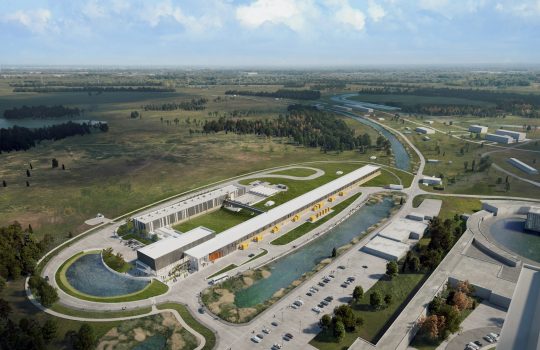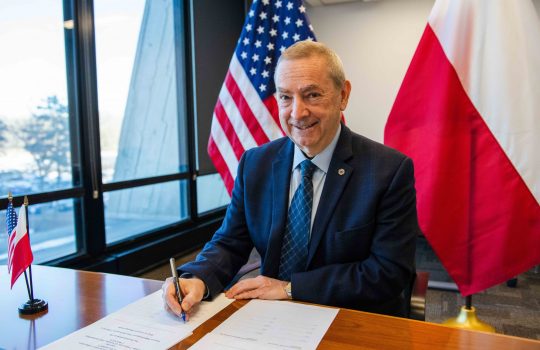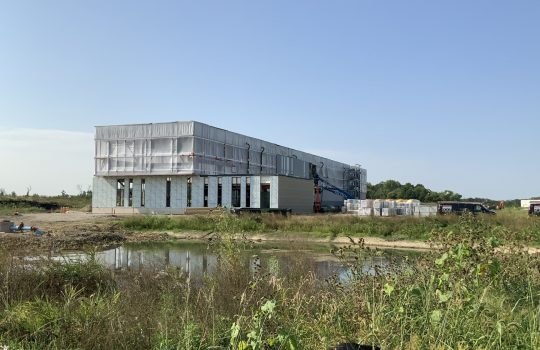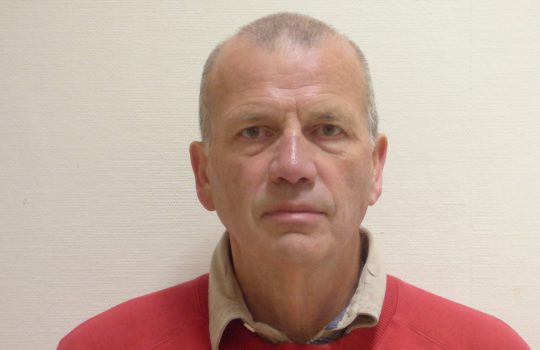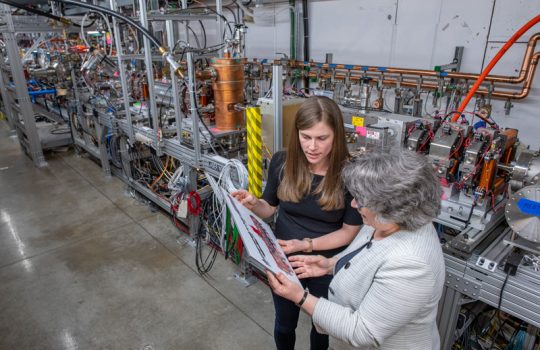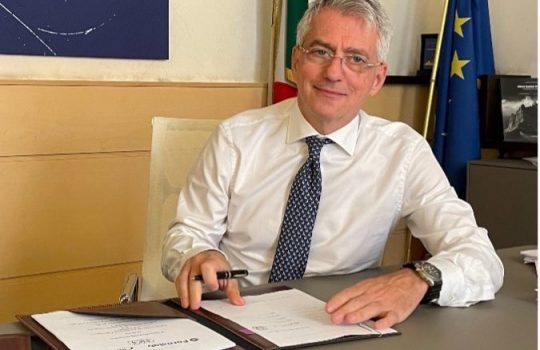New accelerator at Fermilab approved for construction start
The Department of Energy has formally approved the start of full construction for the PIP-II project, an upgrade to the Fermilab accelerator complex that includes a new linear accelerator. PIP-II is an essential enhancement that will power the world’s most intense high-energy neutrino beam. It is the first particle accelerator built in the United States with significant contributions from international partners.

